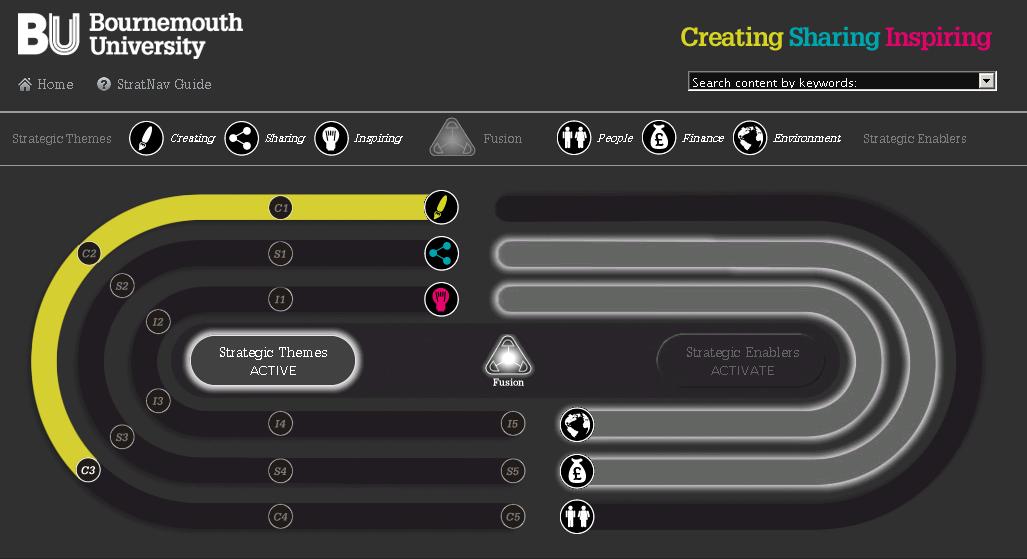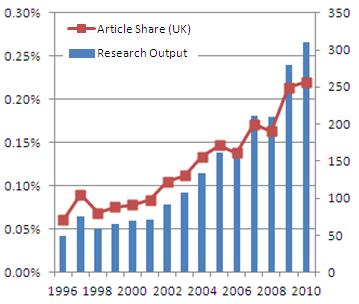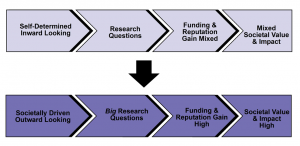 This is a fantastic opportunity to have a say in improving the future commercialisation and application of research and influence policy, and fits in with the thought-leadership strand of BU’s new Vision & Values strategy.
This is a fantastic opportunity to have a say in improving the future commercialisation and application of research and influence policy, and fits in with the thought-leadership strand of BU’s new Vision & Values strategy.
Growth is at the heart of the Government’s economic agenda, and it has made clear the importance of the UK becoming a leader in sectors such as the life sciences and advanced manufacturing. The Government recently published an Innovation and Research Strategy for Growth, setting out how it will work with business and the knowledge base to underpin private sector led growth. In the same week, the Government published its strategy for the life sciences, outlining how the Government will take action to make the UK a world-leading place for life sciences investment.

A key recurring issue that has been raised in the Science and Technology Committee’s previous inquiries is the difficulty of translating research into commercial application, particularly the lack of funding—the so-called “valley of death”. The Committee has therefore agreed to conduct an inquiry into how the Government and other organisations can improve the commercialisation of research.
Terms of Reference – The Committee invites written submissions on the following questions:
1. What are the difficulties of funding the commercialisation of research, and how can they be overcome?
2. Are there specific science and engineering sectors where it is particularly difficult to commercialise research? Are there common difficulties and common solutions across sectors?
3. What, if any, examples are there of UK-based research having to be transferred outside the UK for commercialisation? Why did this occur?
4. What evidence is there that Government and Technology Strategy Board initiatives to date have improved the commercialisation of research?
5. What impact will the Government’s innovation, research and growth strategies have on bridging the valley of death?
6. Should the UK seek to encourage more private equity investment (including venture capital and angel investment) into science and engineering sectors and if so, how can this be achieved?
7. What other types of investment or support should the Government develop?
Submitting written evidence – The Committee invites written submissions on these issues by noon on Wednesday 8 February 2012.
Each submission should:
a) be no more than 3,000 words in length;
b) be in Word format with as little use of colour or logos as possible;
c) have numbered paragraphs; and
d) include a declaration of interests.
A copy of the submission should be sent by e-mail to scitechcom@parliament.uk and marked “Bridging the “valley of death””. An additional paper copy should be sent in due course (not required by the deadline) to:
The Clerk
Science and Technology Committee
House of Commons
7 Millbank
London SW1P 3JA
Please note that:
• Material already published elsewhere should not form the basis of a submission, but may be referred to within a proposed memorandum, in which case a hard copy of the published work should be included.
• Memoranda submitted must be kept confidential until published by the Committee, unless publication by the person or organisation submitting it is specifically authorised.
• Once submitted, evidence is the property of the Committee. The Committee normally, though not always, chooses to make public the written evidence it receives, by publishing it on the internet (where it will be searchable), by printing it or by making it available through the Parliamentary Archives. If there is any information you believe to be sensitive you should highlight it and explain what harm you believe would result from its disclosure. The Committee will take this into account in deciding whether to publish or further disclose the evidence.
• Select Committees are unable to investigate individual cases.
More information on submitting evidence to Select Committees may be found on the parliamentary website at: http://www.parliament.uk/get-involved/have-your-say/take-part-in-committee-inquiries/witness/



 The first closing date for the current round of the BU Fusion Fund competition is 13 January 2012.
The first closing date for the current round of the BU Fusion Fund competition is 13 January 2012. This is a fantastic opportunity to have a say in improving the future commercialisation and application of research and influence policy, and fits in with the thought-leadership strand of
This is a fantastic opportunity to have a say in improving the future commercialisation and application of research and influence policy, and fits in with the thought-leadership strand of 



 I am delighted to share with you the news that BU’s
I am delighted to share with you the news that BU’s 










 UKCGE Recognised Research Supervision Programme: Deadline Approaching
UKCGE Recognised Research Supervision Programme: Deadline Approaching SPROUT: From Sustainable Research to Sustainable Research Lives
SPROUT: From Sustainable Research to Sustainable Research Lives BRIAN upgrade and new look
BRIAN upgrade and new look Seeing the fruits of your labour in Bangladesh
Seeing the fruits of your labour in Bangladesh Exploring Embodied Research: Body Map Storytelling Workshop & Research Seminar
Exploring Embodied Research: Body Map Storytelling Workshop & Research Seminar ECR Funding Open Call: Research Culture & Community Grant – Apply now
ECR Funding Open Call: Research Culture & Community Grant – Apply now ECR Funding Open Call: Research Culture & Community Grant – Application Deadline Friday 12 December
ECR Funding Open Call: Research Culture & Community Grant – Application Deadline Friday 12 December MSCA Postdoctoral Fellowships 2025 Call
MSCA Postdoctoral Fellowships 2025 Call ERC Advanced Grant 2025 Webinar
ERC Advanced Grant 2025 Webinar Update on UKRO services
Update on UKRO services European research project exploring use of ‘virtual twins’ to better manage metabolic associated fatty liver disease
European research project exploring use of ‘virtual twins’ to better manage metabolic associated fatty liver disease